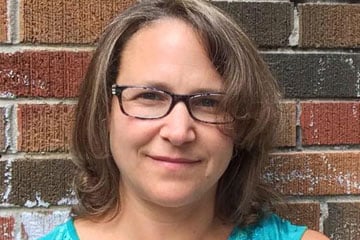

Are law firms really innovating or is it all talk? That is a common debate in the profession these days and Blake Cassels & Graydon LLP has just launched a new challenge to move beyond the noise to what they hope will be real measurable innovation.
The firm has launched its “Global Legal Innovation Challenge,” which will award a prize with an estimated value of $100,000 to a promising innovator in the legal space.
“There is a lot of … talk about how law firms aren’t really doing anything,” says Carla Swansburg, who is the director of practice innovation, pricing & knowledge at Blakes. “I think this is a really good example [of how] some law firms are actually … taking the steps to do stuff that is a little bit different, and a little innovative, but haven’t necessarily historically talked about it a lot.”
Swansburg’s team at Blakes is working with Law Made, a legal incubator in Toronto, to develop a new product that they hope can be used by Blakes, clients, and possibly licensed to other law firms.
Blakes went through an extensive internal discussion about what kind of end product they wanted to see with the challenge, to avoid the endless brainstorming with no tangible results that can occur in “hackathons” and other initiatives meant to spur innovation.
“We are kind of bypassing that route and saying we are going to go out there, we are going to frame the problem, invite solutions and then actually, hands on, roll up our sleeves, and work with the people who are building the tool, to create something that is not necessarily marketable but really gives us a tangible solution that we have helped design,” says Swansburg.
Blakes provides applicants with business requirements to ensure they know what is expected. Swansburg says the solution needs to be “…taking a pre-defined set of legislative provisions, so on a topic for example like consumer credit, and finding a way to automate the creation of reports around changes.”
The reports would need to track relationships between regulations and keep up to date by using a technology solution like machine learning, artificial intelligence or natural language processing to collect this information and provide clear, structured and actionable reporting on regulatory changes.
Blakes and Law Made will provide the winning entry with free legal advice from Blakes, mentoring from Law Made and a paid internship that includes work space and a stipend for up to six months.
Swansburg says she expects entries to come from the startup community, and that some initial applications have already come from Canada and the U.K., with some expressions of interest from the U.S., including a law school centre for law and technology.
There will be a two-step process, with the first round of applicants whittled down to around two to five finalists by a jury from Blakes, Law Made and client and industry participants.
Once the finalists are selected, they will make their pitch to a different jury and this will likely involve a beta test of the interface and an evaluation of the user experience.
They expect the winner to be notified in the late fall of 2017.
While Blakes will not necessarily have equity in the final product, Swansburg says that will depend on “what others come up with.”